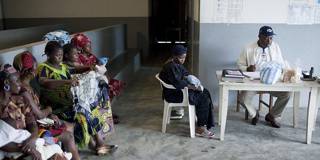
Donald Trump’s Little Women
US President Donald Trump’s “global gag rule” restricts any foreign organization that receives US aid funds from providing abortion services to women – even just information or referrals. Trump seems to be following through on his earlier suggestion that women who have abortions should be "punished."